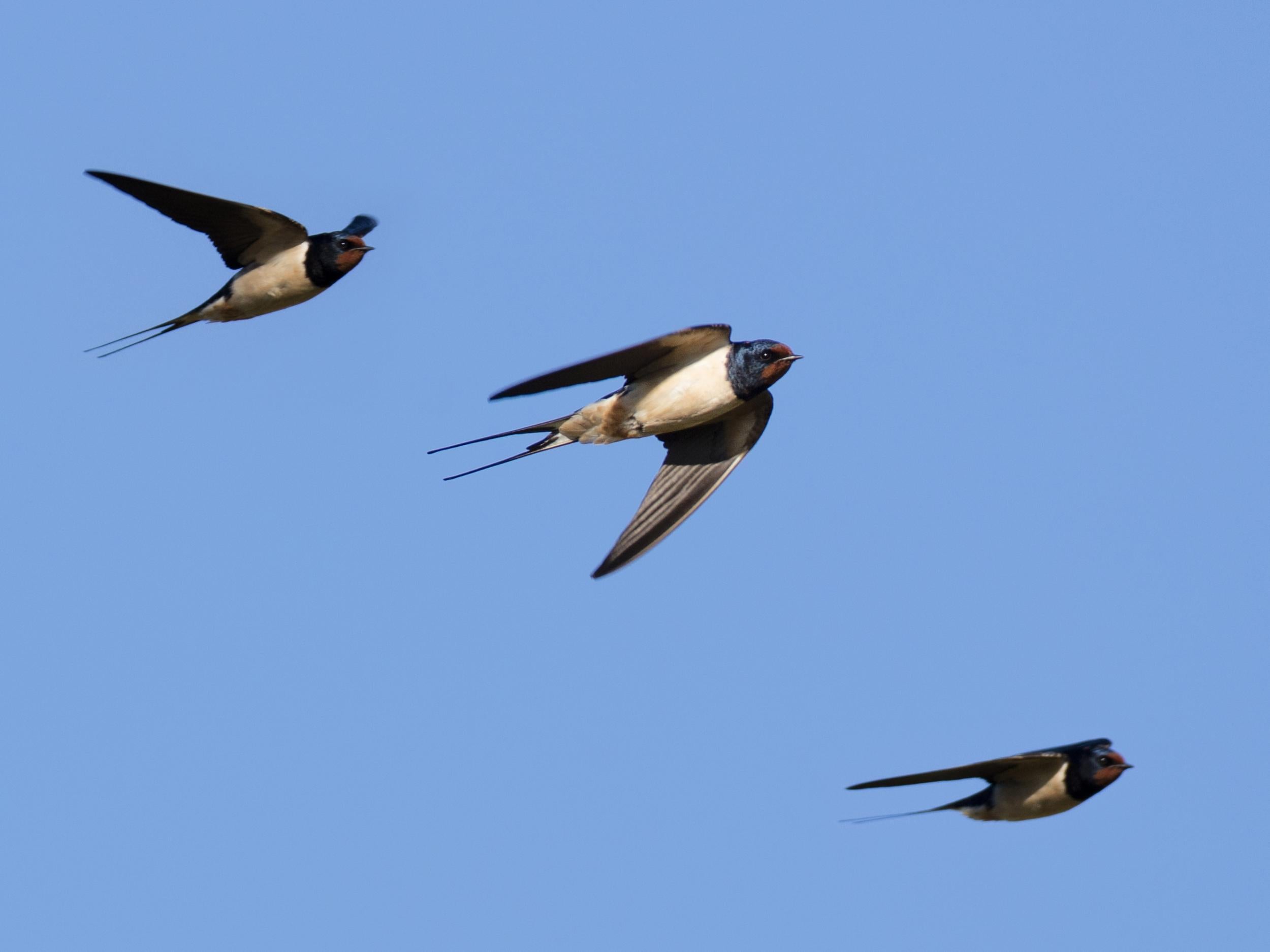Mosquitoes eating microplastics raise fears of pollution harming birds and bats
Insects retain shards of plastic in their bodies when they mature from aquatic larvae into winged adult forms

Your support helps us to tell the story
From reproductive rights to climate change to Big Tech, The Independent is on the ground when the story is developing. Whether it's investigating the financials of Elon Musk's pro-Trump PAC or producing our latest documentary, 'The A Word', which shines a light on the American women fighting for reproductive rights, we know how important it is to parse out the facts from the messaging.
At such a critical moment in US history, we need reporters on the ground. Your donation allows us to keep sending journalists to speak to both sides of the story.
The Independent is trusted by Americans across the entire political spectrum. And unlike many other quality news outlets, we choose not to lock Americans out of our reporting and analysis with paywalls. We believe quality journalism should be available to everyone, paid for by those who can afford it.
Your support makes all the difference.Microplastics have been found everywhere from Arctic sea ice to German farmland, and a new study has revealed these tiny pollutants could even have entered the skies.
Researchers found that when mosquito larvae living in ponds eat tiny shards of plastic, the fragments stay in their bodies until they have matured into winged adults.
With mosquitoes featuring prominently on the menus of birds, bats and larger insects, this raises concerns about plastic finding its way into the aerial food chain.
Since plastic emerged at the top of the environmental agenda, scientists have scrambled to understand the impact it is having on the health of aquatic animals.
While whales choking on large chunks of plastic are the most obvious victims, close examination has found that the likes of plankton, mussels and fish are consuming large volumes of microscopic microplastics.
In this context, mosquito researcher Dr Amanda Callaghan of the University of Reading realised that the problem of plastic ingestion may not be confined to underwater creatures.
“It suddenly occurred to us that mosquitoes, although they live in freshwater, are very different to the other creatures that have been studied so far in that they have a life stage that leaves the water,” Dr Callaghan, who led the new research, told The Independent.
“We thought if mosquitoes eat plastics, does that mean that the plastics are leaving the water and polluting a new environment?”
Previous research shows that mosquito larvae – tube-shaped creatures that live at the water surface and filter out particles to eat – are capable of eating small pieces of plastic.
But no one had ever checked to see if these fragments are retained as the larvae transition through their life cycle before emerging as fully developed adults.
In a paper published in the scientific journal Biology Letters, Dr Callaghan and her team charted the progress plastic can make from a water source to mosquitoes flying through the air.
As mosquito larvae transform into their intermediate pupae forms, the front part of their gut dissolves, but the scientists found that plastics retained in the lower section was carried through to adulthood.
“The implication is that you can have plastics at the bottom of the pond that are now going up into the air and being eaten by spiders and bats and animals that normally wouldn’t have access to that plastic,” said Dr Callaghan.
“You could have a dragonfly, for example, eating mosquitoes as they are emerging – so it could be eating lots of mosquitoes with plastic in them, and then a bird could be eating that and getting an even bigger dose.”
Microplastic research is still in its infancy, and having proved that plastic could be transferred this way inside insects kept in a lab, the researchers now want to determine how big a problem this is in the real world.
Dr Callaghan said that while their study had focused on mosquitoes, it could apply to any flying insects that have underwater life cycle stages – meaning plastic contamination could be rife in airborne animals.
“This is just a proof of concept, but we know those plastics are in the environment in very large numbers – there are some lakes that have got vast numbers of plastics in them,” said Dr Callaghan.
“They are going to be full of insects that will eat them. There’s no doubt this is going to happen in the wild.”
Join our commenting forum
Join thought-provoking conversations, follow other Independent readers and see their replies
Comments